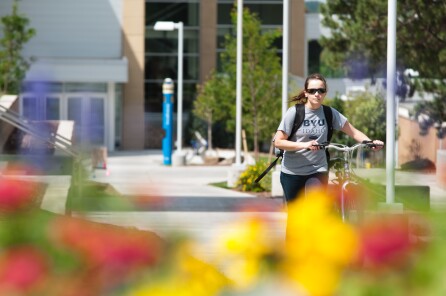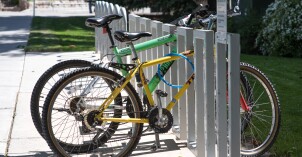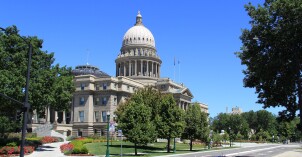Campus sidewalks are primarily designed for pedestrian traffic. Due to large numbers of students, employees, and campus visitors at BYU-Idaho, the safety of people walking on campus is a primary concern.
While there are exceptions when vehicles must travel on a sidewalk, first consideration must be for the safety and access of pedestrian traffic. For more information, see the BYU-Idaho Rideables Policy
While there are exceptions when vehicles must travel on a sidewalk, first consideration must be for the safety and access of pedestrian traffic. For more information, see the BYU-Idaho Rideables Policy


